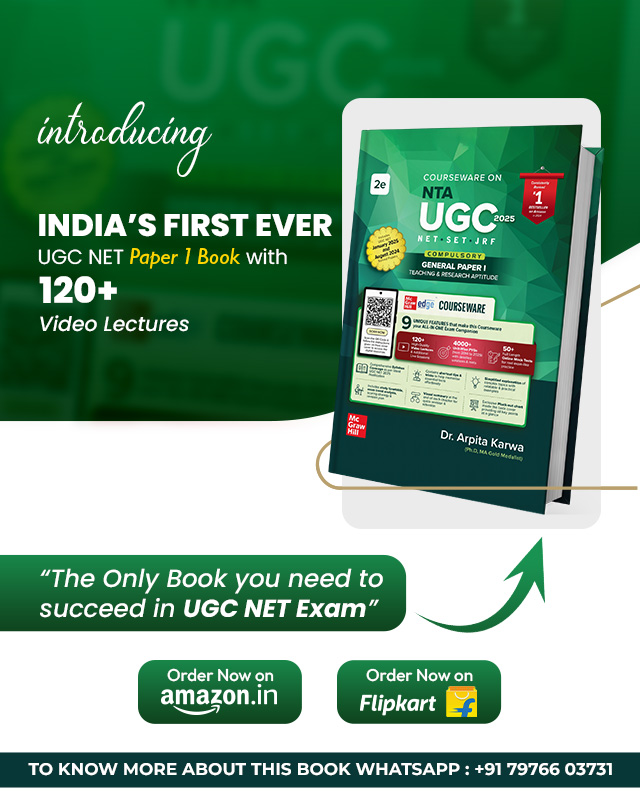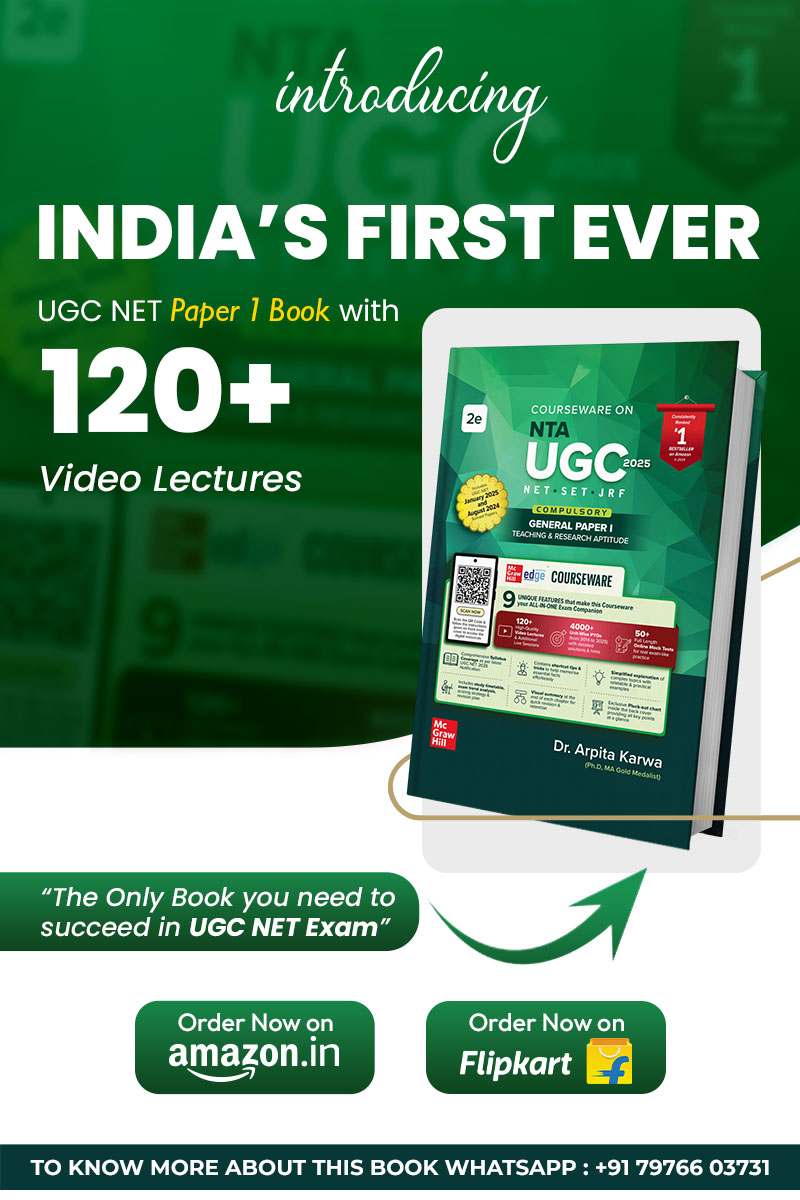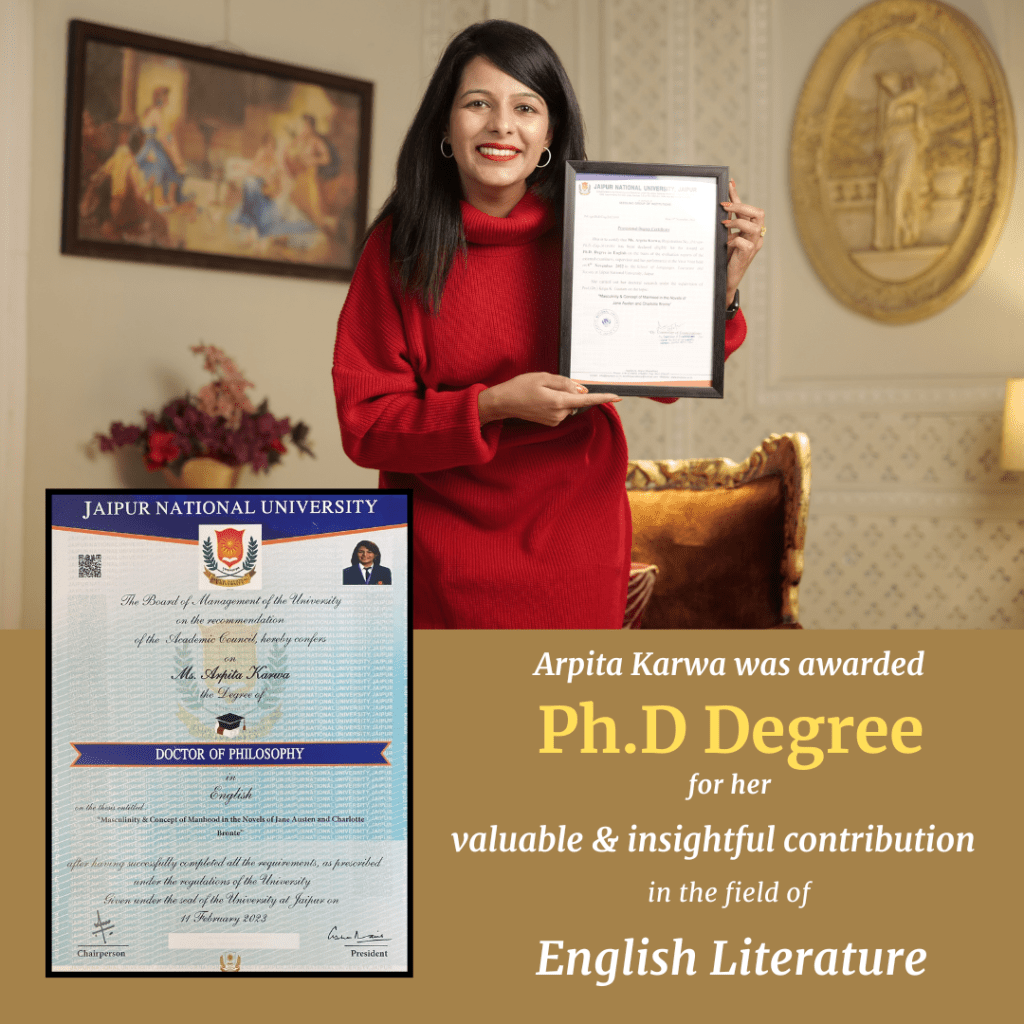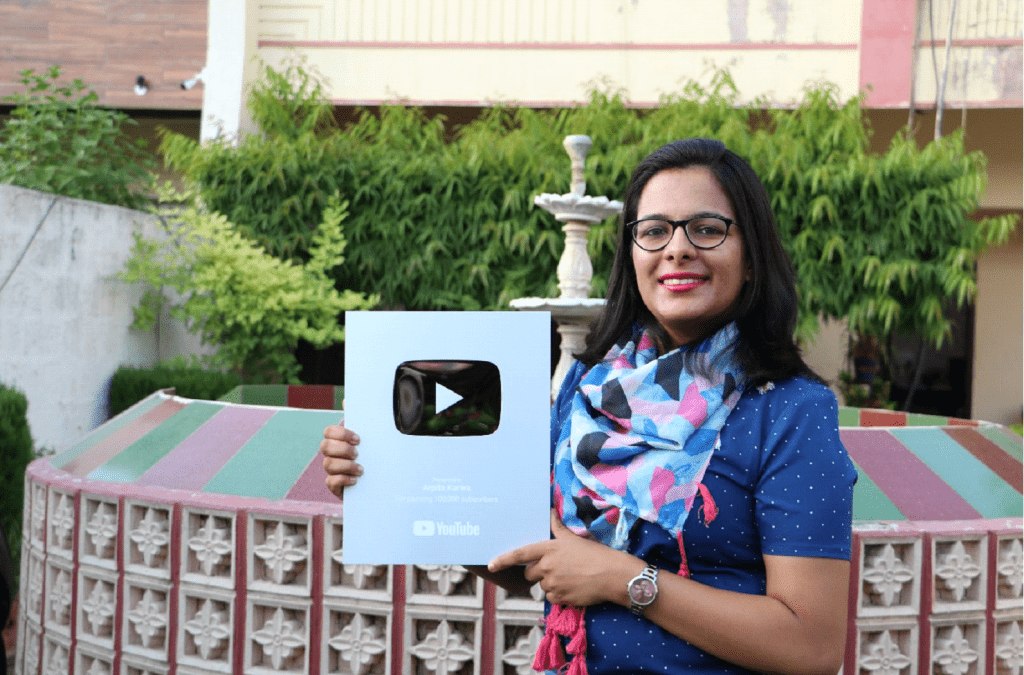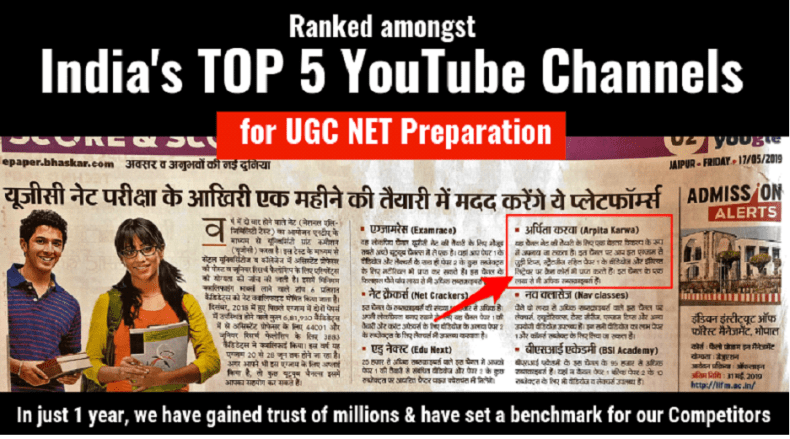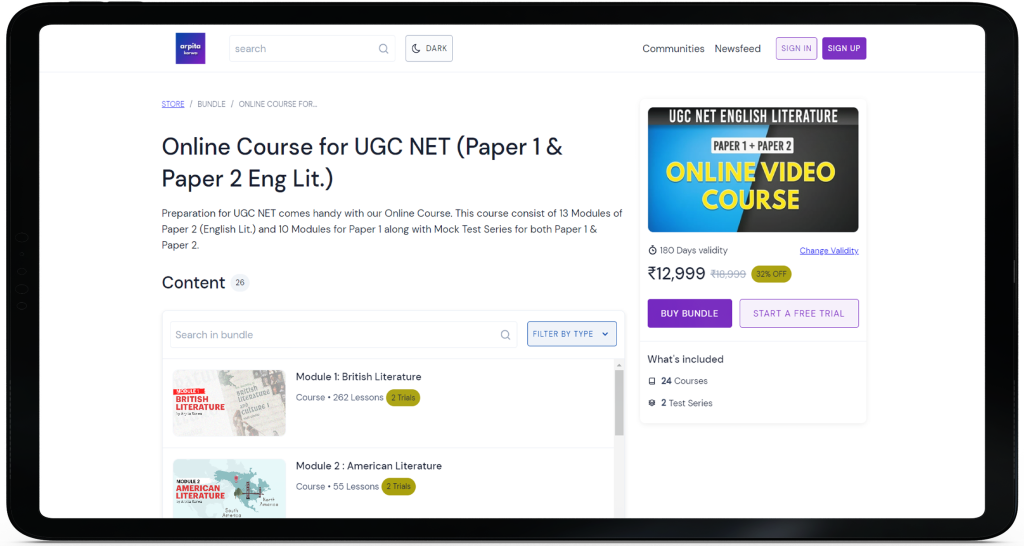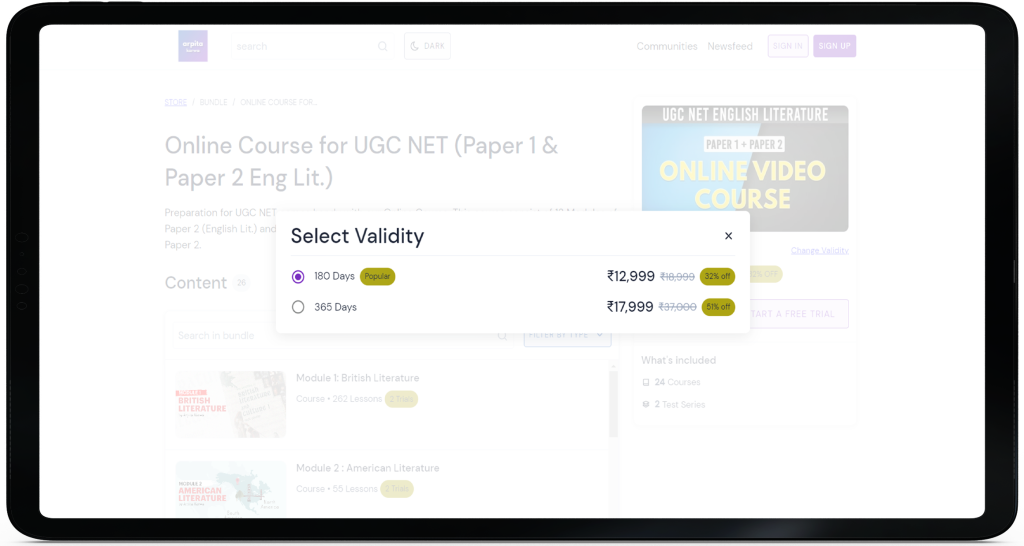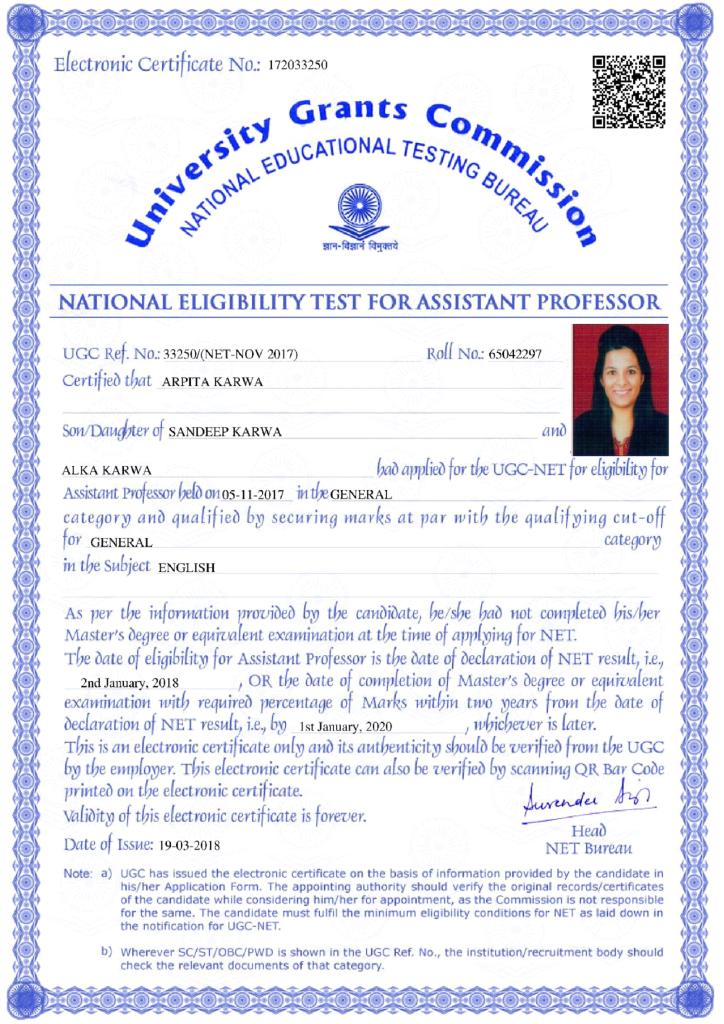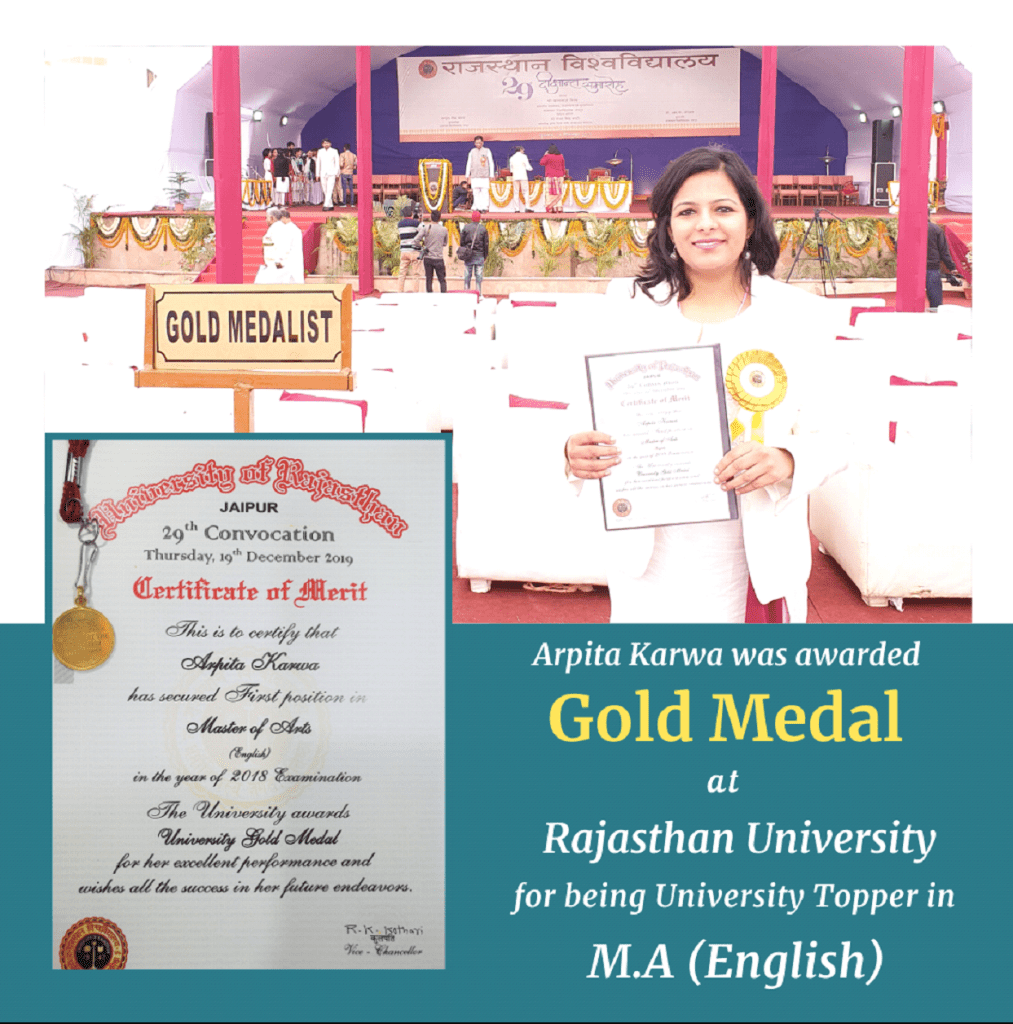CUCET M.A. ENGLISH, ENTRANCE EXAM 2018
June 19, 2023 2023-12-05 16:45CUCET M.A. ENGLISH, ENTRANCE EXAM 2018
CUCET M.A. English, Entrance Exam 2018
CUCET
MA English,2018
Part- A
Q.1) The underlined word is an example of: As he is ill, he cannot go to office.
[1] Noun
[2] Conjunction
[3] Pronoun
[4] Adjective
Answer: Conjunction
Q.2) Which of the following is correctly spelt?
[1]Wierd
[2]Weired
[3]Wiered
[4] Weird
Answer: Weird
Q.3) Which of of the alternatives is correct, if the following sentence is changed into passive voice? Who called you at night?
[1] Who was called?
[2] Who was called you at night?
[3] Were you called?
[4] By whom were you called at night?
Answer: By whom were you called at night?
Q.4) Which of the following sentences is correct?
[1] The teacher has examined the third and the fourth class.
[2] The teacher has examined the third and fourth class.
[3] The teacher has examined the third and the fourth classes.
[4] The teacher has examined third and the fourth class.
Answer: The teacher has examined the third and the fourth classes
Q.5) Which of the following sentences contains error?
[1] The lion is the king of beasts.
[2] The white flower is very beautiful.
[3] The doctor calls here twice month.
[4] Birds of a feather flock together.
Answer: The doctor calls here twice month
Q.6) Which of the following best expresses the meaning of ‘Abdicate’?
[1] Kidnap
[2] Curtail
[3] Resign
[4] Collect
Answer: Resign
Q.7) Which of the following is opposite in meaning to the word ‘Sedate’?
[1] Excited
[2] Serene
[3] Sober
[4] Placid
Answer: Excited
Q.8) Which of the alternatives is to be replaced with the underlined phrase in the following sentence? Transfer this sum to the next page.
[1] Carry out
[2] Carry on
[3] Carry off
[4] Carry over
Answer: Carry on
Q.9) The students should be assiduous ……… their studies.
[1] At
[2] With
[3] Of
[4] In
Answer: With
Q.10) Rinku’s conduct is subversive ………all discipline.
[1] For
[2] Of
[3] To
[4] Against
Answer: To
Q.11) Read the following information carefully and answer the question-texts given below. Six persons- Ankita, Bijay, Chintu, Deb, Elina, and Faiza – are sitting two rows, three in each. Elina is not at the end of any row. Deb is second to the left of Faiza. Chintu, the neighbour of Elina, is sitting diagonally opposite to Deb. Bijay is the neighbour of Faiza.
Which of the following are sitting diagonally opposite to each other?
[1] Faiza and Chintu
[2] Deb and Ankita
[3] Ankita and Chintu
[4] Ankita and Faiza
Answer: Ankita and Faiza
Q.12) Vedas point out features and development of different dynasties. Which of the following vedas deals about Archery and known as “The first testament of mankind”?
[1] Samaveda
[2] Yajurveda
[3] Atharvaveda
[4] Rigveda
Answer: Rigveda – The Rigveda or Rig Veda is an ancient Indian collection of Vedic Sanskrit hymns. It is the oldest one and know as “the first testament of mankind”. It is one of the four sacred canonical texts (sruti) of Hinduism known as the Vedas. The Rigveda is the oldest known Vedic Sanskrit text. Its early layers are one of the oldest extant texts in any Indo-European language. The sounds and texts of the Rigveda have been orally transmitted since the 2nd millennium BCE. The philological and linguistic evidence indicates that the bulk of the Rigveda Samhita was composed in the northwestern region of the Indian subcontinent, most likely between c. 1500 and 1000 BCE, although a wider approximation of c. 1900-1200 BCE has also been given. The text is layered consisting of the Samhita, Brahmanas, Aranyakas and Upanishads. The Rigveda Samhita is the core text, and is a collection of 10 books (mandalas) with 1,028 hymns in about 10,600 verses.
Q.13) ‘Barabati Stadium’ is a sport stadium situated in:[1] Kochi, Kerala
[2] Guwahati, Assam
[3] Hyderabad, Telangana
[4]Cuttack, Odisha
Answer: Cuttack, Odisha – The Barabati Stadium is an Indian sports stadium used mostly for cricket and association football, and also sometimes for concerts and field hockey, located in Cuttack, Odisha. Established by the Odisha Cricket Association in the year 1958, the stadium is one of the oldest sports venues in India. The very first cricket test match at Barabati Stadium was hosted in the year 1987 between India vs Sri Lanka. However, the first ODI match here was played between India vs England on 27 January, 1982. In the past, the stadium has also been a home venue for teams like Deccan Chargers, Kolkata Knight Riders, and Kings XI Punjab in Indian Premier League. This one and only stadium in the city of Cuttack is located right next to the famous historical site – Barabati Fort. Not just this, the ground has also hosted Cricket World Cup matches in 1987 and 1996. Though it isn’t one of the regular Test venues anymore, it continues to enjoy the status of international venue and hosts One-Day Internationals regularly. It also hosted the 2013 Women’s Cricket World Cup.
Q.14) What does RAM stand for?
[1] Read Access Memory
[2] Random Access Memory
[3] Random Access Memory
[4] Read Assess Memory
Answer: Random Access Memory – RAM (Random Access Memory) is the internal memory of the CPU for storing data, program, and program result. It is a read/write memory which stores data until the machine is working. As soon as the machine is switched off, data is erased.
Access time in RAM is independent of the address, that is, each storage location inside the memory is as easy to reach as other locations and takes the same amount of time. Data in the RAM can be accessed randomly but it is very expensive. RAM is volatile, i.e. data stored in it is lost when we switch off the computer or if there is a power failure. Hence, a backup Uninterruptible System (UPS) is often used with computers.Q.15) Which of the following features of the Indian Constitution has been borrowed from UK?
[1] Post of Prime Minister
[2] Fundamental duties
[3] Supreme Court
[4] Concept of Directive Principles of State’s Policy
Answer: Post of Prime Minister
Sources of the Indian Constitution
| Name of countries | Borrowed Features of the Constitution |
|---|---|
| Britain |
1. Parliamentary government 2. Rule of Law 3. Legislative procedure 4. Single citizenship 5. Parliamentary privileges 6. Bicameralism |
| Ireland |
1. Directive Principles of State Policy 2. Method of Election of the President 3. Members nomination to the Rajya Sabha by the president |
| Unites States of America |
1. Impeachment of the President 2. Functions of President and vice- president 3. Removal of Supreme Court and High Court judges 4. Fundamental Rights 5. Independence of judiciary |
| Canada |
1. Centrifugal form of federalism where the centre is stronger than the states. 2. Residuary powers vest with the centre 3. Centre appoints the Governors at the states |
| Australia |
1. Concept of Concurrent list |
| USSR (Now Russia) |
1. Fundamental duties |
| France |
1. Concept of “Republic” 2. Ideals of Liberty, Equality and Fraternity (contained in the Preamble) |
| Germany |
1. Fundamental Rights are suspended during Emergency |
| South Africa |
1. Amendment of the Constitution |
[1] Debilitating Marginal Utility
[2] Decreasing Marginal Utility
[3] Diminishing Marginal Utility
[4] Declining Marginal Utility
Answer: Diminishing Marginal Utility
Q.17) The chief instrument through which Lord Dalhousie implemented his policy of annexation was the:
[1] Treaty of Indian Allies
[2] Doctrine of Lapse
[3] Modernizing Indian Society
[4] Treaty of Perpetual Friendship
Answer: Doctrine of Lapse: The chief instrument through which Lord Dalhousie implemented his policy of annexation was the ‘Doctrine of Lapse.’ Under the Doctrine of Lapse, when the ruler of a protected state died without a natural heir, his/her state was not to pass to an adopted heir as sanctioned by the age-old tradition of the country. Instead, it was to be annexed to the British dominions unless the adoption had been clearly approved earlier by the British authorities. Many states, including Satara in 1848 and Nagpur and Jhansi in 1854, were annexed by applying this doctrine. Dalhousie also refused to recognize the titles of many ex-rulers or to pay their pensions. Thus, the titles of the Nawabs of Carnatic and of Surat and the Raja of Tanjore were extinguished. After the death of the ex- Peshwa Baji Rao II, who had been made the Raja of Bithur, Dalhousie refused to extend his pay or pension to his adopted son, Nana Saheb.
Q.18) Which is the longest river of the peninsular India?
[1] Ganga
[2] Godavari
[3] Brahmaputra
[4] Mahanadi
Answer: Godavari – The Godavari is India’s second longest river after the Ganga and third largest in India, drains about 10% of India’s total geographical area. Its source is in Triambakeshwar, Maharashtra. It flows east for 1,465 kilometres, draining the states of Maharashtra (48.6%), Telangana (18.8%), Andhra Pradesh (4.5%), Chhattisgarh (10.9%) and Odisha (5.7%). The river ultimately empties into the Bay of Bengal through an extensive network of tributaries. Measuring up to 312,812 km², it forms one of the largest river basins in the Indian subcontinent, with only the Ganga and Indus rivers having a larger drainage basin. In terms of length, catchment area and discharge, the Godavari is the largest in peninsular India, and had been dubbed as the Dakshina Ganga.”
Q.19) According to which of the Articles in the Constitution of India, the President has a power to confer or proclaim a state of emergency in the whole or part of India if he/she feels that a grave situation has arisen, in which the security of India or part of its territory might get threatened by war, external aggression, or rebellion?
[1] Article 352
[2] Article 354
[3] Article 356
[4] Article 360
Answer: Article 352 says that if the President is satisfied that a grave emergency exists whereby the security of India or any part of the territory of India is threatened by war or external aggression or armed rebellion, he may proclaim an emergency. This emergency may be with respect to whole or part of India. The article 352 puts certain conditions which are very important to understand:
• The proclamation or formal declaration of emergency can be revoked by further proclamation.
• The proclamation of a war emergency cannot be made by the President unless the Union cabinet gives him in written that such proclamation should be made.
• If a proclamation is NOT revoked subsequently, it should be laid before the parliament. The both houses of parliament must approve such proclamation within two months. If the parliament does not approve the proclamation, it will become ineffective.
• It may be that at the time of the proclamation, the house of people has been dissolved or its dissolution takes place within the period of two months after the proclamation. In these cases, the proclamation shall be laid before Rajya Sabha. If Rajya Sabha passes it, it must be approved by Lok Sabha within the 30 days of the new meeting of the Lok Sabha. However, if Rajya Sabha itself does not pass the proclamation, the proclamation would cease to be valid.
•Please note that Power of President to declare an Emergency may be made use of even before the actual occurrence of aggression or disturbance.
Q.20) Akash lent ₹ 180 to Bikash for 10 years and ₹ 200 to Chand for 2 years at simple interest, the rate of interest being same in both the cases. He received ₹ 220 as total interest. Find out the rate of interest.
[1] 5%
[2] 10%
[3] 8%
[4] 9%
Answer: 10%
Q.21) A cistern is filled in 8 hours, but takes 2 hours longer to fill because of a leak in its bottom. If the cistern is filled, the leak will empty it in:
[1] 40 hours
[2] 20 hours
[3] 10 hours
[4] 15 hours
Answer: 40 hours
Q.22) The average age of 8 men is increased by 2 years, if one of them whose age is 24 years, is replaced by a fresh man. Find the age of the fresh man.
[1] 24 years
[2] 26 years
[3] 40 years
[4] 51 years
Answer: 40 years
Let the average age of 8 men is x years and tha age of the fresh man is y years
then, 8x-24+y= 8(x+2)
→ 8x-24+y= 8x+16
→ -24+y= 16
→ y= 16+24
→ y= 40 years
Hence, the age of the fresh man is 40 years.
Q.23) A sum of ₹12,500 amounts to ₹ 15,500 in four years at the rate of simple interest. What is the rate of interest?
[1] 5%
[2] 6%
[3] 5.5%
[4] 7%
Answer: 6%
Q.24) If A, B, C, and D are four consecutive even numbers and their average is 181, what is the product of B and C?
[1] 33860
[2]32760
[3] 34567
[4] 33670
Answer: 32760
Q.25) The ratio of length to the breadth of a rectangle plot is 9: 8. The perimeter of the plot is 408 meters. What is the area of the plot?
[1] 10863 m²
[2] 10368 m²
[3] 19435 m²
[4] 13680 m²
Answer: 10368 m²
Let the length and the breadth of a rectangle plot are 9x and 8x
then, perimeter= 408 meters
→ 2(l+b) = 408
→ 2(9x+8x) = 408
→ 2(17x) = 408
→ x=12
Hence, the area of the plot= l x b
= 9x x 8x
=72x²= 72(12) ²
=72 x 144 sq meters
=10368 sq. meters
PART-B
Q.26) How many books does Homer’s Iliad contain?
[1] 12
[2] 6
[3] 20
[4] 24
Answer: 24
Q.27) What type of work did Aesop write?
[1] novel
[2] short story
[3] fables
[4] novella
Answer: fables
Q.28) Who wrote Ars Poetica?
[1] Aristotle
[2] Horace
[3] Demosthenes
[4] Plato
Answer: Horace
Q.29) Who is considered the father of modern English poetry?
[1] Milton
[2] Shakespeare
[3] Chaucer
[4] Spenser
Answer: Chaucer
Q.30) “Sweet Thames, run softly, till I end my song.” Who wrote the above line?
[1] Shakespeare
[2] Spenser
[3] Marlowe
[4] Milton
Answer: Spenser
Q.31) Why was the Royal Society founded in England in 1660?
[1] to protect the interests of the British royal family
[2] to help the aristocrats in England
[3] to improve Natural Knowledge in England
[4] to elevate the bourgeoisie to the level of the royal class
Answer: to improve Natural Knowledge in England
Q.32) The term “Restoration” signifies…….. .
[1] replacement
[2] revival
[3] restoration of monarchy in the Stuart period in England
[4] None of these
Answer: restoration of monarchy in the Stuart period in England
Q.33) In which year did Milton start writing Paradise Lost?
[1] 1656
[2] 1660
[3] 1662
[4] 1664
Answer: 1656
Q.34) What kind of a poem is “The Rape of the Lock”?
[1] a lyric
[2] a mock-epic
[3] an epic
[4] a sonnet
Answer: a mock-epic
Q.35) “If Pope be not a poet, where is poetry to be found?” Who said this?
[1] Dryden
[2] Swift
[3] Dr. Johnson
[4] Byron
Answer: Dr. Johnson
Q.36) In which of the following novels, does Squire Thornhill appear?
[1] Pamela
[2] Tom Jones
[3] Joseph Andrews
[4] The Vicar of Wakefield
Answer: The Vicar of Wakefield
Q.37) Who was the Virgin Queen of England?
[1] Elizabeth I
[2] Mary I
[3] Queen Anne
[4] Anne Boleyn
Answer: Elizabeth I
Q.38) From the poem of which writer does the British national anthem, “Rule Britannia,” originate?
[1] Shakespeare
[2] James Thomson
[3] Spenser
[4] Pope
Answer: James Thomson
Q.39) Who called the early part of the 18th century “an age of prose?”
[1] Dryden
[2] Pope
[3] Dr. Johnson
[4] Matthew Arnold
Answer: Matthew Arnold
Q.40) “The curfew tolls the knell of parting day.” In which poem does the above serve as the opening line?
[1] “Daffodils”
[2] “Dover Beach”
[3] “Elegy Written in a Country Churchyard”
[4] “Kubla Khan”
Answer: Elegy Written in a Country Churchyard”
Q.41) In which play of Shakespeare does Orlando appear as the central male character?
[1] The Merchant of Venice
[2] Twelfth Night
[3] Measure for Measure
[4] As You Like it
Answer: As You Like it
Q.42) Which of the following is the last play of Shakespeare?
[1] Julius Caesar
[2] The Tempest
[3] Coriolanus
[4] Antony and Cleopatra
Answer: The Tempest
Q.43) What is the social status of Macbeth at the beginning of the play?
[1] King of Scotland
[2] Commander of the king’s army
[3] Thane of Glamis
[4] Prince of Wales
Answer: Thane of Glamis
Q.44) “Sweet Helen, make me immortal with a kiss.” Whose supplication is this?
[1] Mephistopheles
[2] Dr. Faustus
[3] Agamemnon
[4] Ajax
Answer: Dr. Faustus
Q.45) Who authored The White Devil?
[1] Thomas Middleton
[2] Thomas Dekker
[3] Thomas Heywood
[4] John Webster
Answer: John Webster
Q.46) How many plays did Shakespeare write?
[1] 36
[2] 37
[3] 38
[4] 39
Q.47) In which play has Shakespeare written, “Sweet are the uses of adversity”?
[1] Othello
[2] Romeo and Juliet
[3] Hamlet
[4] As You Like It
Answer: As You Like It
Q.48) Katyusha Maslova is the central female character in Tolstoy’s fiction entitled……. .
[1] Anna Karenina
[2] Resurrection
[3] The Death of Ivan Illych
[4] War and Peace
Answer: Resurrection
Q.49) Which country did Fyodor Dostoevsky belong to?
[1] Czechoslovakia
[2] Prussia
[3] Russia
[4] Hungary
Answer: Russia
Q.50) How many epics did Virgil write?
[1] one
[2] two
[3] three
[4] four
Answer: three
Q.51) When was Lyrical Ballads first published?
[1] 1800
[2] 1798
[3] 1803
[4] 1810
Answer: 1798
Q.52) “Ten thousand I saw at a glance Tossing their heads in sprightly dance.” What does Wordsworth mean by “ten thousand”?
[1] spirits
[2] damsels
[3] nymphs
[4] daffodils
Answer: daffodils
Q.53) Who was the first ever British Poet Laureate?
[1] Spenser
[2] Shakespeare
[3] Milton
[4] Dryden
Answer: Dryden
Q.54) How many poems are there in Wordsworth’s “Lucy” collections?
[1] ten
[2] five
[3] four
[4] eight
Answer: five
Q.55) What is the poem “Kubla Khan” about?
[1] It is about nature.
[2] It describes Coleridge’s relationship with William Wordsworth.
[3] It is about the pleasure palace of Kubla Khan, the Mongol emperor.
[4] It is a poem about a lone island.
Answer: It is about the pleasure palace of Kubla Khan, the Mongol emperor
Q.56) What is the bird which is a partaker of human action in “The Rime of the Ancient Mariner?”
[1] a parrot
[2] a sparrow
[3] a nightingale
[4] an albatross
Answer: an albatross
Q.57) In which poem does the character, Geraldine appear?
[1] “Tintern Abbey”
[2] “Christabel”
[3] “Ode to Apollo”
[4] “Adonais”
Answer: “Christabel”
Q.58) “Here lies one whose name was writ in water.” On whose tomb, was the above line inscribed?
[1] Shakespeare
[2] Tennyson
[3] Keats
[4] Dryden
Q.59) What is the title of the fragmentary drama written by Keats ?
[1] Alastor
[2] Lamia
[3] The Cenci
[4] Otho
Answer: Lamia
Q.60) Where does the action take place in Keats’s poem “The Eve of St. Agnes?”
[1] in the palace of Porphyro
[2] in an open field
[3] in the palace of Madeline
[4] in the Cardiff castle
Answer: in the palace of Madeline
Q.61) “I woke up one fine morning and found myself famous.” Who said this?
[1] Wordsworth
[2] Byron
[3] Shelley
[4] Keats
Answer: Byron
Q.62) Who wrote Don Juan?
[1] Arnold
[2] Shelley
[3] Byron
[4] Keats
Answer: Byron
Q.63) What is “Child Harold’s Pilgrimage?”
[1] a drama
[2] an ode
[3] an elegy
[4]a narrative poem
Answer: a narrative poem
Q.64) “If Winter comes, can Spring be far behind?” Who is the author of this line?
[1] Coleridge
[2] Shelley
[3] Swift
[4] Keats
Answer: Shelley
Q.65) Francis Thomson wrote poems about:
[1] Nature
[2] Sex
[3] War
[4] God
Answer: God
Q.66) How would you classify the poem “Adonais?”
[1] as a lyric
[2] as a dramatic monologue
[3] as a pastoral elegy
[4] as a ballad
Answer: as a pastoral elegy
Q.67) When did the British navy defeat the Spanish Armada?
[1] 1586
[2] 1587
[3] 1588
[4] 1589
Answer: 1588
Q.68) Which of the following is not an essay by Francis Bacon?
[1] Of Truth
[2] Of Love
[3] Poor Relations.
[4] Of Revenge
Answer: Poor Relations
Q.69) Who made a vehement comment on Shakespeare that he had small Latin and less Greek?
[1] Christopher Marlowe
[2] Ben Jonson
[3] Beaumont
[4] Fletcher
Answer: Ben Jonson
Q.70) Who said that “poetry is a criticism of life?”
[1] Francis Bacon
[2] John Milton
[3] Lord Byron
[4] Matthew Arnold
Answer: Matthew Arnold
Q.71) In which of Tennyson’s poem, do the following lines appear?
“For men may come and men may go, But I go on for ever.”
[1] “The Brook”
[2] “Ulysses”
[3] “Mariana”
[4] “The Lotos Eaters”
Answer: “The Brook”Q.72) Who was the poet who frequently refused payment for his poems, for he contended that he wrote poetry only for glory?
[1] Shelley
[2] G. Rossetti
[3] Rupert Brooke
[4] Lord Byron
Answer: G. Rossetti
Q.73) “My Last Duchess” is a……….
[1] lyric
[2] pastoral elegy
[3] dramatic monologue
[4] sonnet
Answer: dramatic monologue
Q.74) What is the relationship between Andrea and Lucrezia in Browning’s “Andrea Del Sarto?”
[1] father and daughter
[2] mother and son
[3] brother and sister
[4] husband and wife
Answer: husband and wife
Q.75) William Hazlitt is renowned for his ……….. .
[1] miscellaneous essays
[2] personal essays
[3] historical essays
[4] spiritual essays
Answer: miscellaneous essays
Q.76) Who introduced sprung rhythm in English poetry?
[1] Dryden
[2] Goldsmith
[3] Tennyson
[4] G.M. Hopkins
Answer: G.M. Hopkins
Q.77) “Datta, dayadhvam, damyata shantih shantihshantih” In which poem does this message appear?
[1] Love in a Life
[2] The waste land
[3] Tithonus
[4] Paradise Lost
Answer: The waste land
Q.78) “Easter 1916” is a poem written by
[1] Winston Churchill
[2] Ted Hughes
[3] W.H. Auden
[4] W.B. Yeats
Answer: W.B. Yeats
Q.79) Who said, “Poetry makes nothing to happen?”
[1] Plato
[2] Coleridge
[3] W.H. Auden
[4] Matthew Arnold
Answer: W.H. Auden
Q.80) Who authored Catalina?
[1] Joseph Conrad
[2] H.G. Wells
[3] Thomas Hardy
[4] W. Somerset Maugham
Answer: W. Somerset Maugham
Q.81) A fabliau is a ……. .
[1] short comic or satiric tale in verse
[2] rustic tale
[3] mock-epic
[4] folklore
Answer: short comic or satiric tale in verse
Q.82) Tiresias is the central character in…………
[1] The Wreck of the Deutschland
[2] The Family Reunion
[3] The Waste Land
[4] The Aeneid
Answer: The Waste Land
Q.83) The term “mythology” signifies………. .
[1] folk songs
[2] a branch of astronomy
[3] ancient love stories
[4] a system of hereditary stories
Answer: a system of hereditary stories
Q.84) What is denotation?
[1] annotation
[2] assumed meaning of a word
[3] literal or primary meaning of a word
[4] a note in music
Answer: literal or primary meaning of a word
Q.85) What is a hyperbole?
[1] a bold overstatement
[2] an understatement
[3] an ironical statement
[4] reticence
Answer: a bold overstatement
Q.86) What is Celtic Renaissance?
[1] Revival of learning in Germany
[2] Revival of learning in France
[3] Revival of Danish art
[4] Irish Literary Revival
Answer: Revival of Danish art
Q.87) Prosody means ………….
[1] a study of prose
[2] a study of grammar
[3] a systematic study of versification
[4] a study of fiction
Answer: a study of fiction
Q.88) What is euphony?
[1] a saxophone
[2] it is language which is smooth, pleasant and musical
[3] an earphone
[4] a pattern of sounds
Answer: it is language which is smooth, pleasant and musical
Q.89) “All animals are equal, but some animals are more equal.” In which novel does the above statement appear?
[1] Volpone or the Fox
[2] Lord of the Flies
[3] The Hound of Baskervilles
[4] Animal Farm
Answer: Animal Farm
Q.90) Who made the following statement?
“I’ll publish, right or wrong:
Fools are my theme, let satire be my song.”
[1] Alexander Pope
[2] Lord Byron
[3] Jonathan Swift
[4] Bernard Shaw
Answer: Lord Byron
Q.91) I.C.L.A. is the abbreviation for…………… .
[1] International Comparative Literature Association
[2] Indian Comparative Literature Association
[3] Indiana Comparative Literature Association
[4] International Comparative Literature Academy
Answer: International Comparative Literature Association
Q.92) Who referred to Comparative literature as “VishvaSahiyta”?
[1] Sri Aurobindo
[2]B.Chatterjee
[3] M.R. Anand
[4] Rabindranath Tagore
Answer: Rabindranath Tagore
Q.93) What is Magna Carta?
[1] the name of an island near the British coast
[2] declaration of independence for America
[3] a charter of demands presented to King John
[4] British colonial expansion.
Answer: a charter of demands presented to King John
Q.94) Who wrote the first Indian novel in English Rajmohan’s Wife (1864)?
[1] Rabindranath Tagore.
[2] Bankim Chandra Chatterjee
[3] HOTS Venkatramani
[4] Prem Chand
Answer: Bankim Chandra Chatterjee
Q.95) The winner of the Nobel Prize for literature for 2017 was
[1] Salman Rushdie
[2] Ivan McEwan
[3] Francis Spufford
[4] Kazuo Ishiguro
Answer: Kazuo Ishiguro
Q.96) Maximalism is……..
[1] maximum use of memory power while writing
[2] disorganized, lengthy, highly detailed writing
[3] a recent stylistic trend in prose-writing
[4] avoidance of punctuation in prose-writing
Answer: disorganized, lengthy, highly detailed writing
Q.97) Wings of Fire was written by……. .
[1] Winston Churchill
[2] General Alexander Haig
[3] Benjamin Disraeli
[4] Dr. Abdul Kalam
Answer: Dr. Abdul Kalam
Q.98) Who is Noam Chomski?
[1] an American linguist
[2] a British poet
[3] an Australian poet
[4] a Canadian playwright
Answer: an American linguist
Q.99) Which was the first novel of Mulk Raj Anand?
[1] Coolie
[2] Two Leaves and a Bud
[3] Untouchable.
[4] The Village
Answer: Untouchable
Q.100) Winner of the Man Booker Prize for 2017 is……….. .
[1] Orhan Pamuk
[2] Harold Pinter
[3] José Saramago
[4] George Saunders
Answer: George Saunders






